
3 Animated Films That Reveal the Psychology of Growing Up
Share
How three beloved animated films reveal the hidden wisdom of navigating life's transitions
Some stories refuse to leave us alone. They return at different life stages, offering new insights each time we encounter them. For me, three animated films have served as unexpected guides through the complexities of growing up: Coraline, Spirited Away, and Alice in Wonderland.
These aren't typical coming-of-age narratives promising clear resolutions. Instead, they explore something more nuanced. How we navigate the uncomfortable space between who we were and who we're becoming.
The Psychology of Threshold Moments
What draws me to these films isn't their fantastical elements, but their honest portrayal of transition. Each protagonist finds herself in what psychologists term "liminal space"—that uncertain territory where old identities no longer fit, but new ones haven't yet formed.
Unlike conventional stories that treat growing up as a problem requiring solutions, these films embrace uncertainty as fertile ground for transformation. They suggest that the most meaningful changes happen not when we find ourselves, but when we learn to move gracefully through the unknown.
When Change Chooses Us
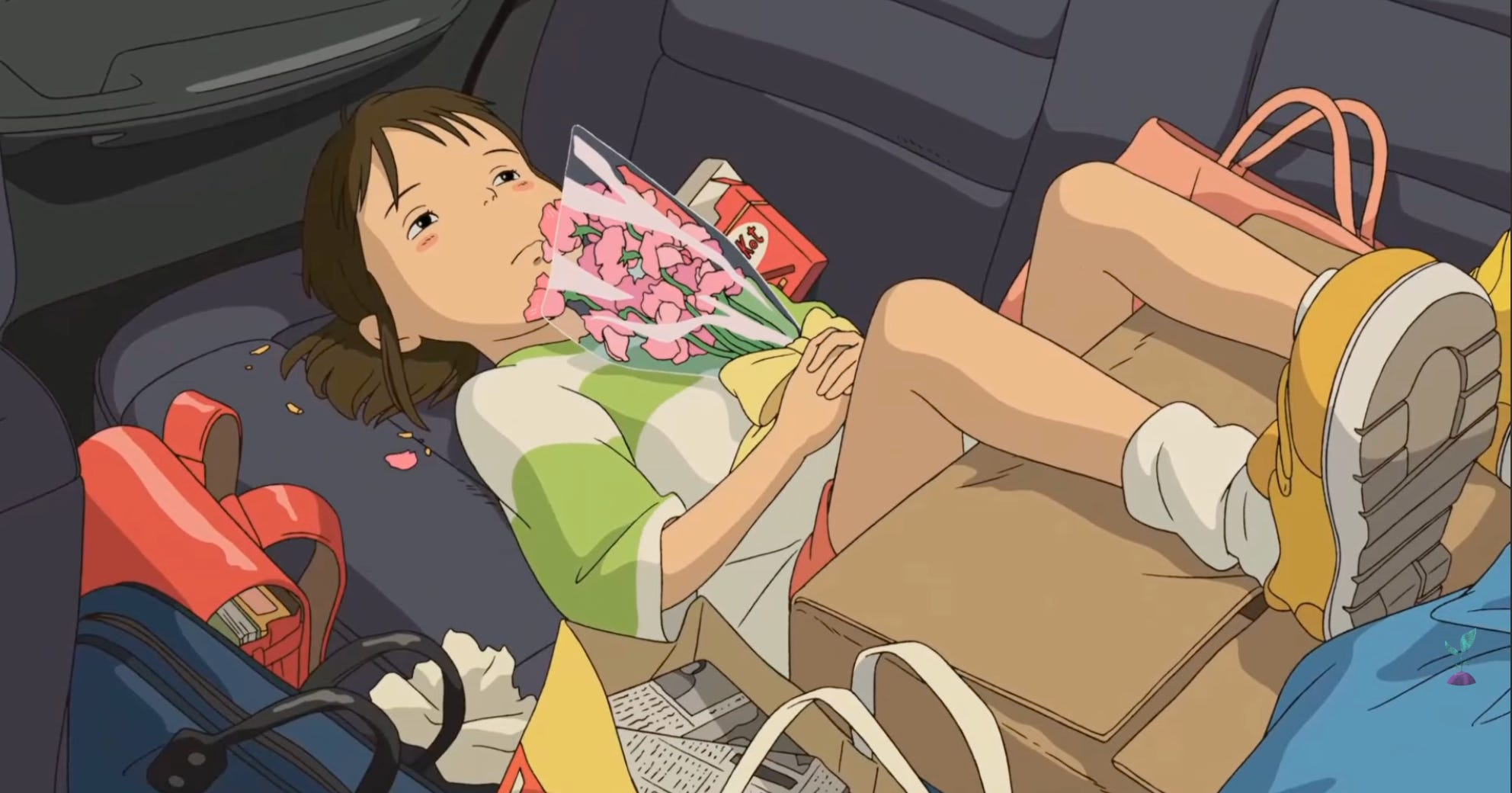
Notice how each heroine enters her strange new world: Coraline discovers a hidden door during an unwanted move. Chihiro follows her parents through an abandoned tunnel, protesting the entire way. Alice tumbles down the rabbit hole pursuing curiosity.
None actively sought adventure. They simply found themselves thrust into situations demanding adaptation, much like how most significant life transitions actually occur. We rarely choose our moments of greatest growth; they choose us.
This mirrors real-world transitions: job losses, relationship endings, unexpected opportunities. The disorientation these characters experience reflects our own feelings when familiar structures suddenly shift.
The Architecture of Uncertainty
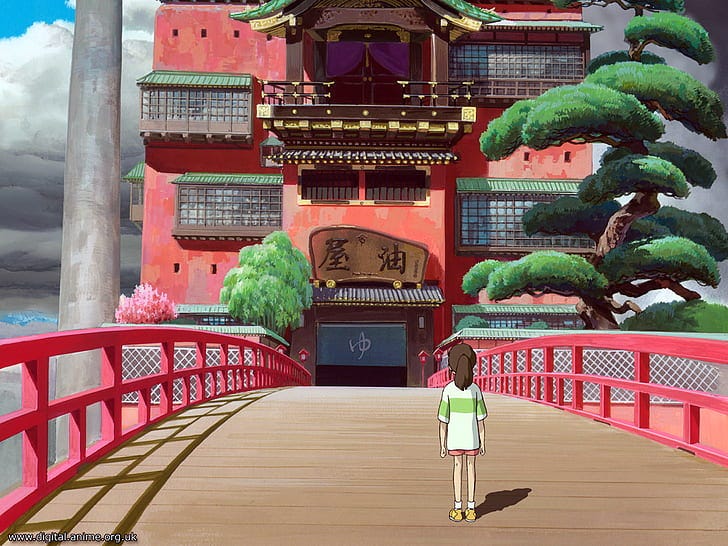
The worlds these girls enter operate by dream logic because that's precisely how transition feels. Time moves strangely. Authority figures prove unreliable. Rules shift without warning.
In Spirited Away's bathhouse, Chihiro must work to earn her right to exist while her very name is stolen. Coraline's Other World offers everything she thinks she wants, but at the cost of her authentic self. Alice's Wonderland dissolves logic entirely, forcing constant adaptation while maintaining some core identity.
These spaces share emotional architecture with real transitions: confusion, isolation, the pressure to prove worthiness while figuring out who you are through action rather than instruction.
Identity Through Action, Not Intention
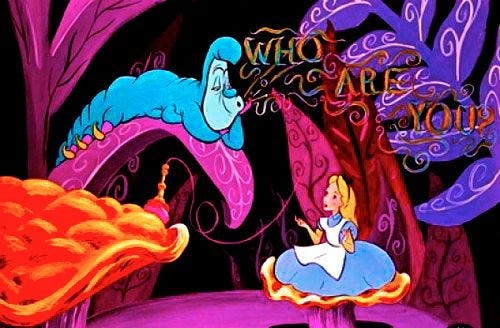
After multiple viewings, I notice how little guidance these heroines receive. No mentors explain the rules. No wise figures validate their confusion. They must discover who they are through trial and error, through accumulating small choices that gradually reveal character.
This resonates with my own career journey. Despite advice against "job hopping," each transition, including a period of unemployment many viewed as failure, strengthened my self-understanding. I learned my values, discovered what kinds of collaborations energise me, and found space to explore interests I'd never considered.
Like these animated heroines, I had to learn that everyone's guidance reflects their own experience more than your actual needs.
The Courage to Name Reality
Alice's growth accelerates when she stops trying to remember who she was before falling and starts asserting what she knows to be true. When she declares the Queen of Hearts' court "nothing but a pack of cards," she claims her right to name reality as she experiences it.
Chihiro transforms from frightened child to someone who helps a polluted river spirit and shows kindness to a lonely dragon. Her courage wasn't a decision, she kept doing brave things until bravery became part of her identity.
Coraline faces perhaps the most insidious challenge: a world offering everything she thinks she wants in exchange for everything she actually is. She learns to distinguish between being seen and being consumed, between love and possession.
The Particular Challenges of Girlhood
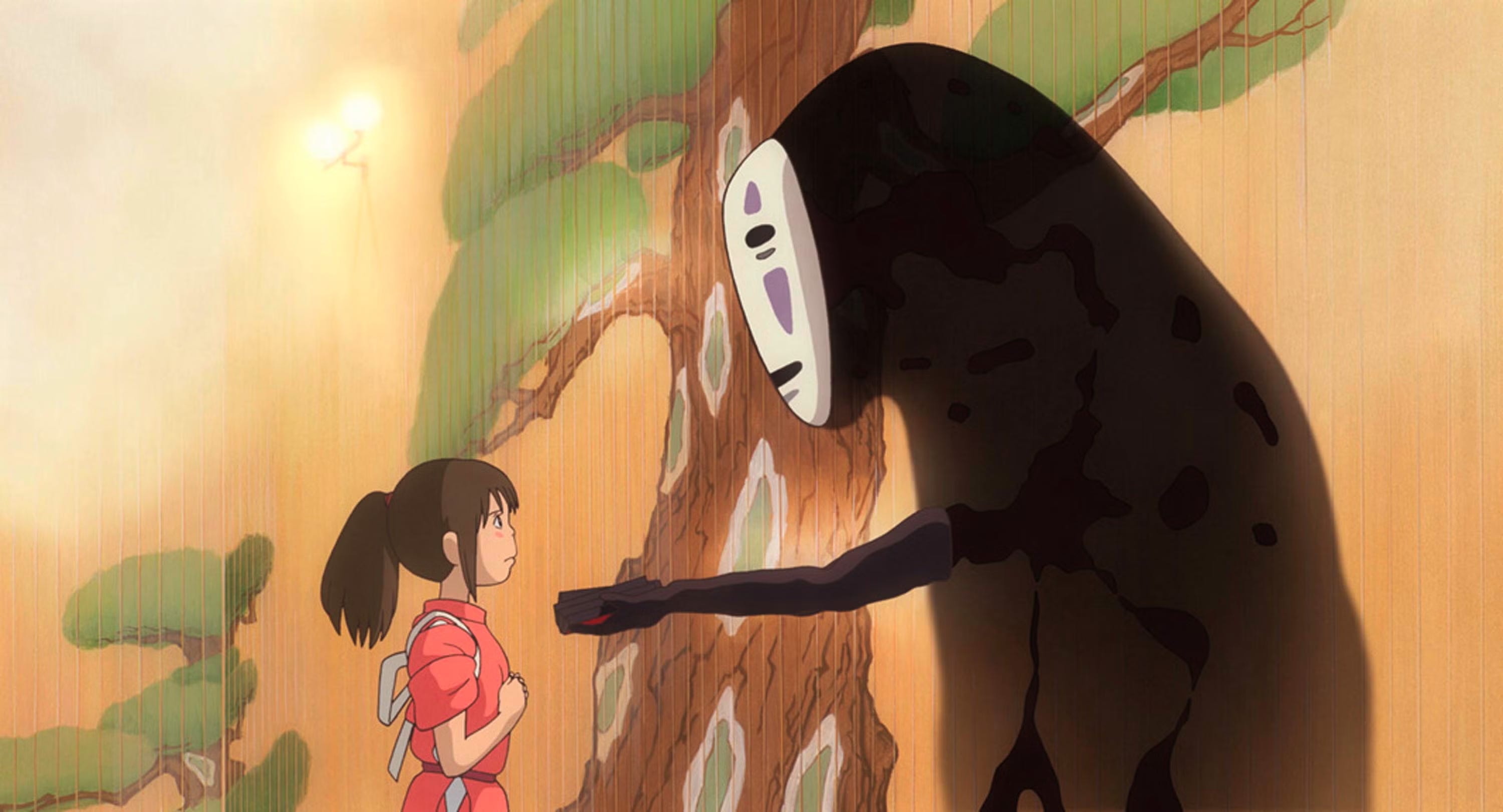
The protagonists' gender isn't incidental. These films understand what many empowerment narratives miss: the world isn't always kind to girls who know themselves.
Growing up female means navigating impossible standards: Be attractive but not vain, smart but not threatening, independent but not difficult. We over-educate ourselves, chase financial stability with intensity that often surpasses male peers, while knowing too much success can make us "unpalatable."
Alice is constantly labeled too curious, too questioning. Her intelligence becomes evidence of defiance rather than capability. Chihiro navigates a world where her youth is seen as incompetence, her kindness as weakness. Coraline's real experiences are dismissed as "overactive imagination."
Yet what makes these stories powerful is how they expose conformity as false safety. The Other Mother's perfect world is actually a trap. The spirit world's protective rules strip away identity. Wonderland's harmless nonsense functions as control.
The real danger lies in forgetting who you are.
Universal Lessons from Specific Experiences
While centered on girls' experiences, these liminal spaces speak to universal challenges. We all face unwanted transitions—career changes, relationship endings, loss, relocation. Each creates its own version of Wonderland where old rules don't apply and new ones remain unclear.
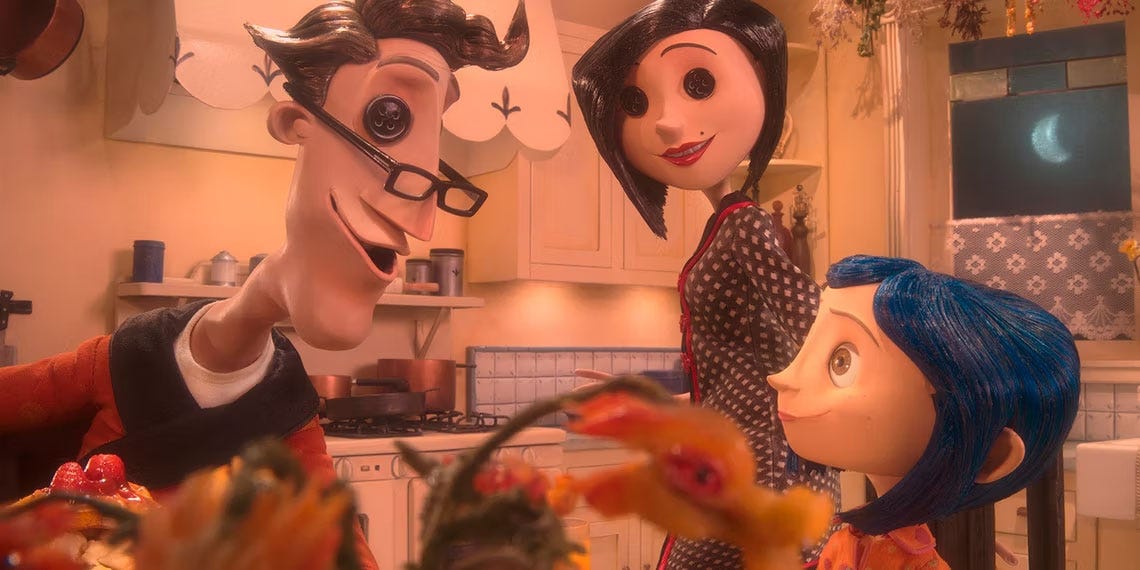
The choice becomes: Do we try becoming what the new environment demands, or do we find ways to remain authentically ourselves while adapting to circumstances?
These films suggest a third option, what Carl Jung called "holding the tension." Remaining open to growth while maintaining connection to core values. Adapting without abandoning essential self.
This requires willingness to be misunderstood, to move slowly when others demand speed, to trust your perceptions even when they contradict popular opinion.
The Continuous Nature of Becoming
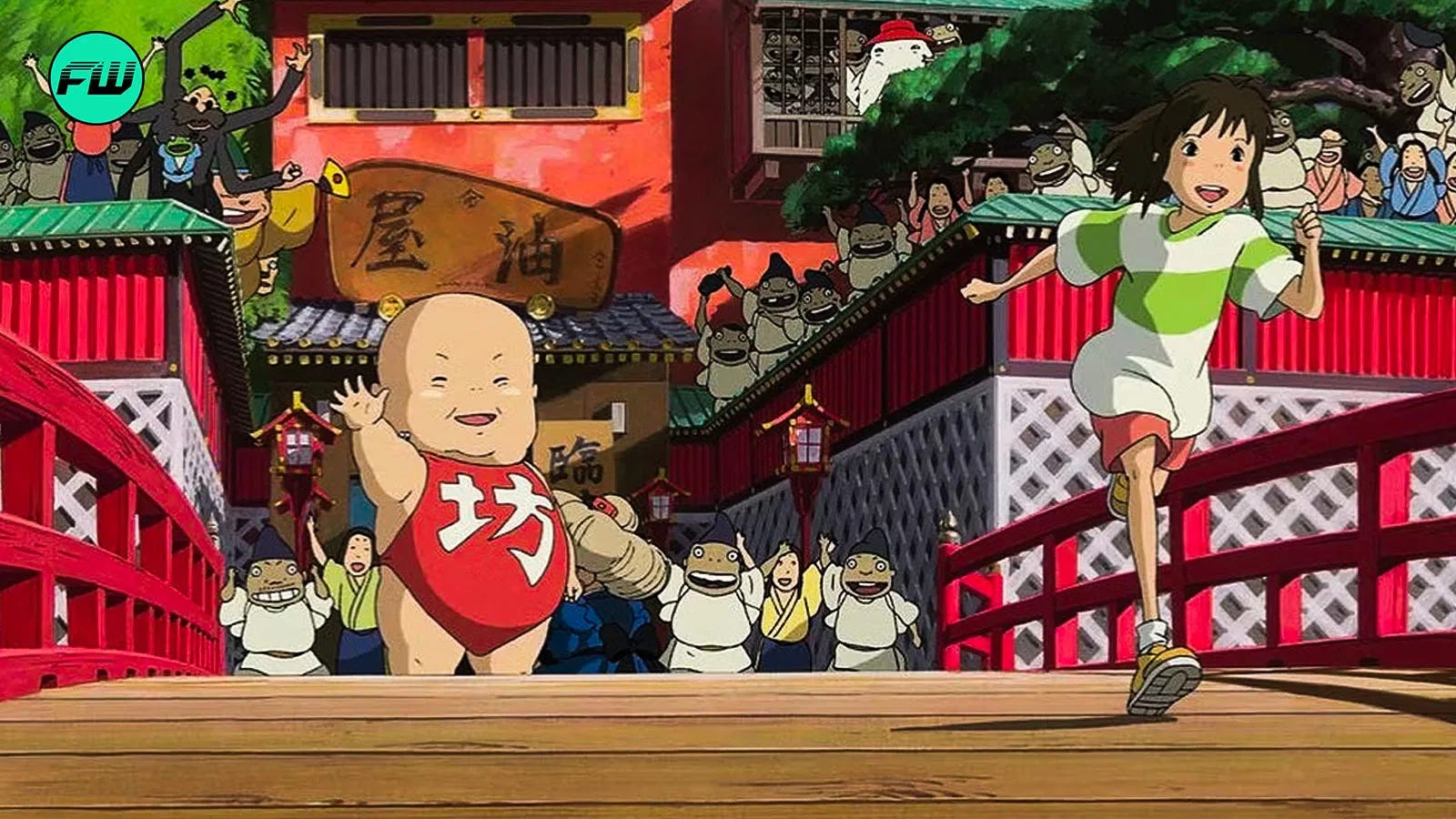
What I love most about these films is their refusal to offer tidy resolutions. Alice returns to a world still expecting conformity. Chihiro must still face the disorientation of a new town. Coraline goes home to parents who remain imperfect.
The portals don't fix their lives, they provide better understanding of who they are. What these girls carry back is renewed capacity to engage: to act with clarity, trust what they see, stay kind in a misunderstanding world.
We are always mid-becoming. Every transition—heartbreak, career change, loss, growth, calls us to participate more fully in our own unfolding. The goal isn't reaching some fixed destination, but practicing what it means to live with intention.
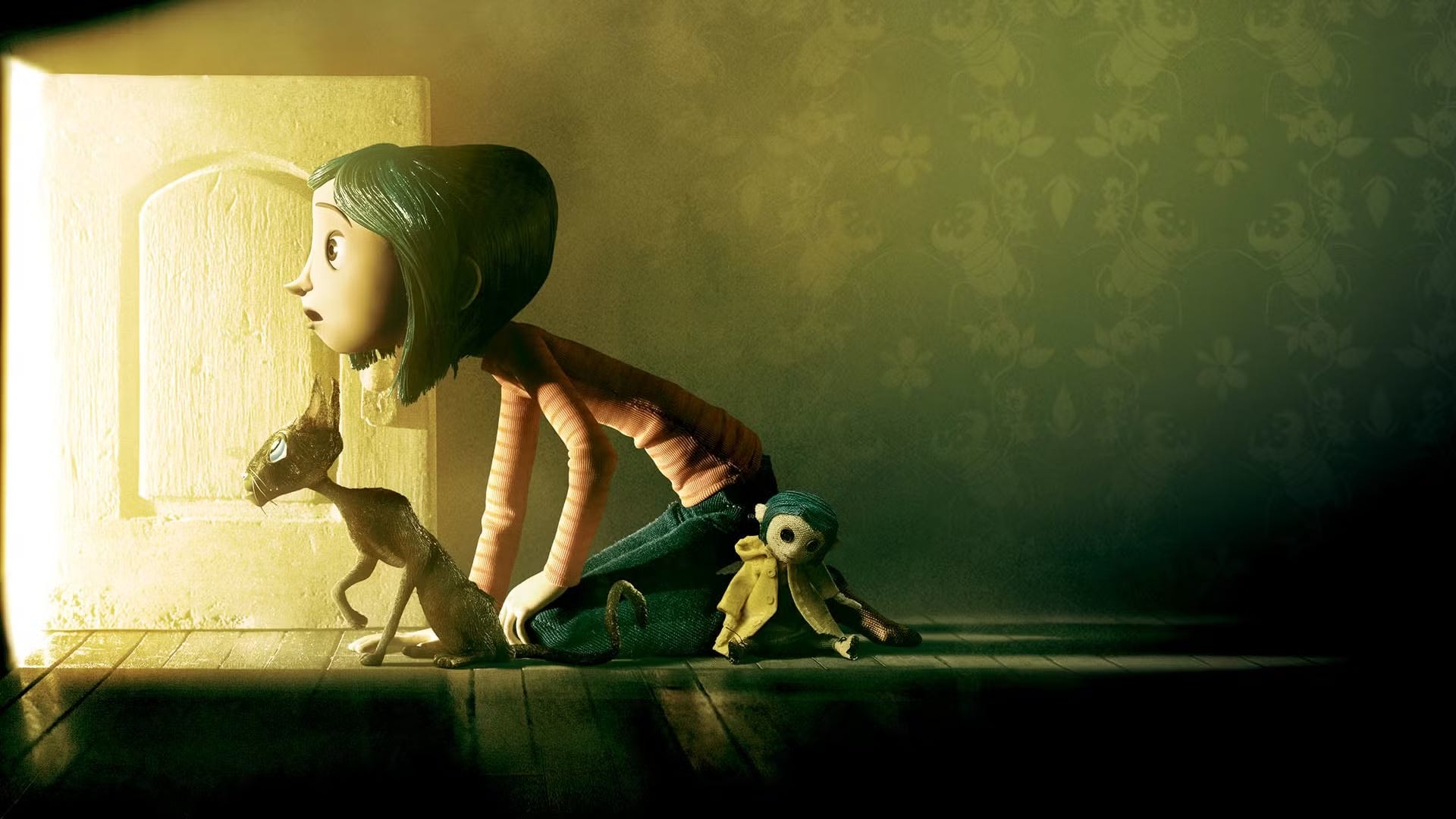
Like Alice naming nonsense, Chihiro remembering names, Coraline refusing perfectionist illusions, we build authenticity through small, daily decisions that accumulate into a life.
The portals never stop appearing. Neither does our ability to choose how we meet them, with presence, agency, and the quiet courage to keep becoming ourselves.
What transitions are you navigating right now? Which of these three films resonates most with your current journey? Share your thoughts in the comments below.
